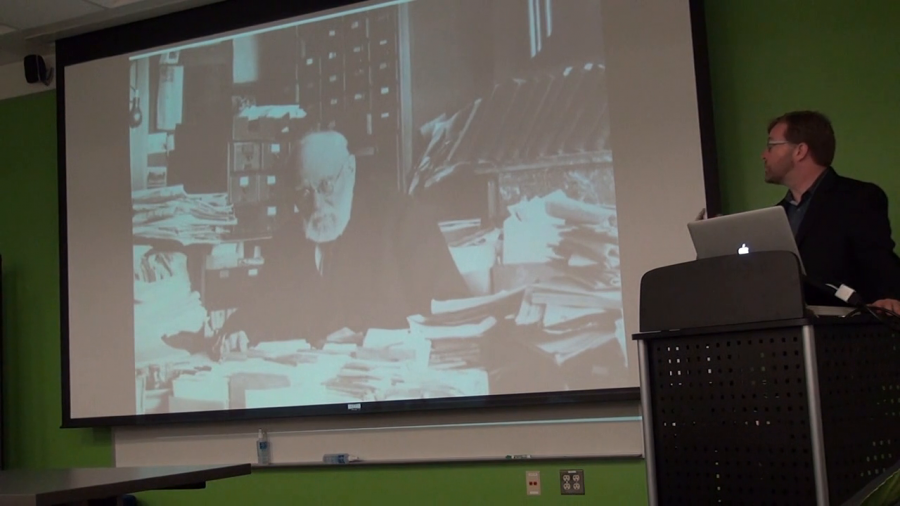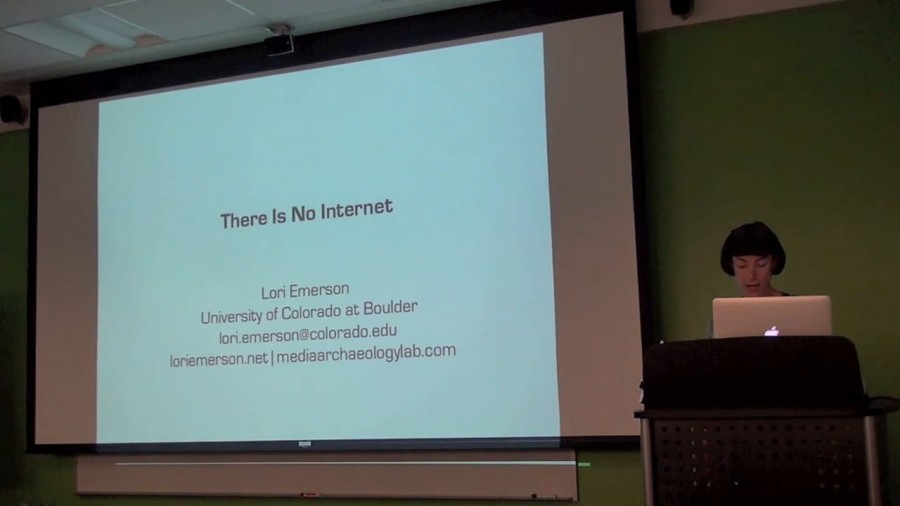The Soviet experience suggests something really important for us today, which is that networks are entirely compatible with surveillance. And many of our favorite things to talk about, then, peer-to-peer production, or end-to-end intelligence, kind of missed the point that I think is now obvious. That whether you’re the NSA or Google or whoever else…you’re a general secretariat, seeking to privatize our power, and you are surveilling us, because you have a network in place.
Archive

I wanted to give you a little bit of perspective on Otlet’s broader vision, which I think is in a way even more interesting as a reference point for thinking about some of the changes we’re seeing today as our lives are increasingly reshaped by technology and networks. What Otlet offers is a different way into that space, and a different way of thinking about what a networked world could look like.

What I’d like to do for probably the next 40 to 45 minutes is just first of all talk about how Reading Writing Interfaces as well as the Media Archaeology Lab underlie my next/current project that I’m calling “Other Networks,” which will lead me into an explanation of my kind of mysterious title “There Is No Internet.” And I’ll finish with talking about specific examples of other networks. When I say “other networks” I’m talking primarily about networks that were outside or before what we now call The Internet.

